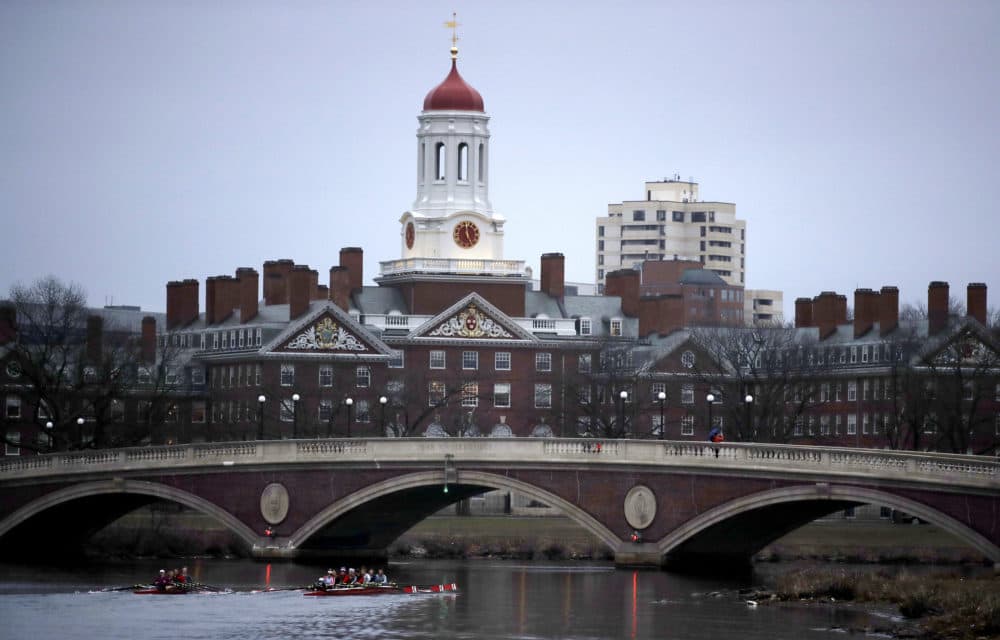Advertisement
Judge Hears Last Round Of Arguments In Harvard Bias Suit

A final decision on the Harvard admissions lawsuit is now officially in Judge Allison Burroughs’ hands after a somewhat unusual retreading of trial highlights Wednesday afternoon.
The second round of closing arguments over whether Harvard holds Asian-American applicants to a higher bar in admissions began as most of the previous court proceedings did back in October: with a packed courtroom. Activists and members of the community filled the public benches to capacity, with many standing along the walls and sitting on the floor.
Like what you're reading? You can get the latest education news (and other stories Boston is talking about) sent directly to your inbox with the WBUR Today newsletter. Subscribe here.
The arguments and focus areas were also familiar to many who watched the trial last year. Attorney Adam Mortara, with Students For Fair Admissions, spent much of his allotted time talking about “personal ratings,” a subjective score which Harvard admissions officers give to applicants that reflects personality traits. He reminded the judge that Asian-American applicants scored significantly lower in this category than all other ethnic groups.
Mortara also talked at length about new language added to admissions officer instruction manuals on how to determine personal ratings. He criticized Harvard officials for adding that soon after a summary judgement in the lawsuit was issued last summer.
“This thing had not changed in such a material way in decades,” argued Mortara. “Are we supposed to believe that the addition of these words changed nothing?”
Harvard’s attorneys pushed back on Mortara’s statements once again arguing SFFA’s statistical analysis is flawed. As during the trial, they alleged the plaintiff’s expert witness, Duke University economist Peter Arcidiacono, left out an important subgroup of applicants, which includes recruited athletes, students on the Dean’s watch list and children of staff members.
Harvard attorney Bill Lee also highlighted a moment in the trial when Arcidiacono acknowledged that Asian-American applicants in that omitted group of students were admitted at a higher rate than other ethnic groups.
“It is very difficult to square that accusation of discrimination of some but not all within an ethnic group,” said Lee.
Judge Burroughs occasionally interrupted with questions to clarify numerical and case law arguments each side made. But one question for SFFA stood out.
“What should I do with the fact that you haven’t showed me any students who haven’t gotten in but should have?” Burroughs asked.
Mortara’s response was quick.
“You told us we didn’t need to,” he said. Mortara argued that while witnesses can give life to a case, they’re not necessary. He added that SFFA’s statistical analysis was strong enough to stand on its own.
Burroughs thanked both sides for presenting their arguments to the court again, and closed the day with few concrete clues as to how she’d ultimately rule. Her decision on the lawsuit is expected in the coming months.
This article was originally published on February 13, 2019.
